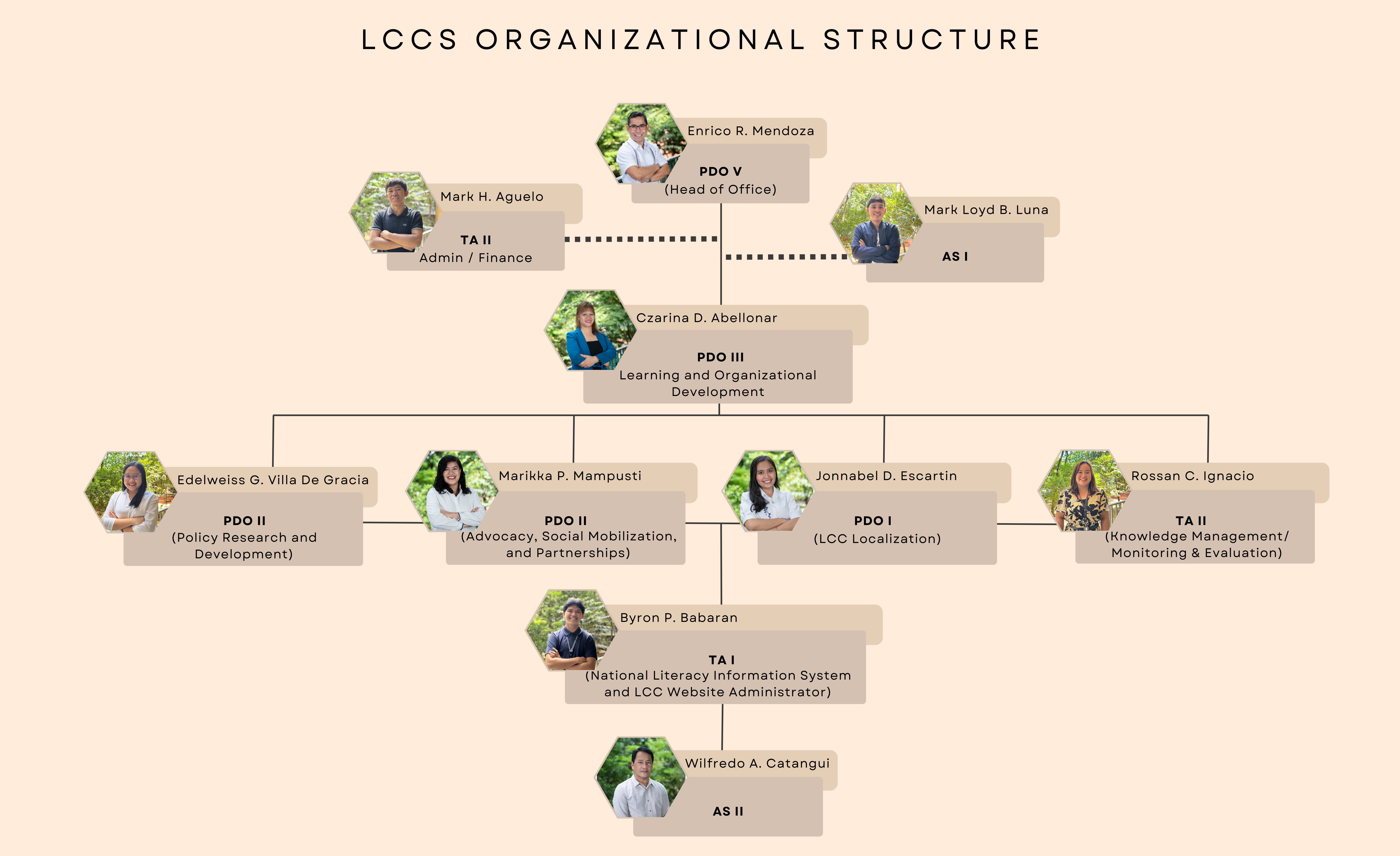About us
BRIEF HISTORY
In 1990, the literacy movement was expanded by UNESCO in two ways: (1) by declaring this year as the International Literacy Year, and (2) the convening of World Conference on Education for All (WCEFA) in Jomtien, Thailand.
The Philippines, as a signatory to the 1990 Jomtien Document, initially concertized its participation in the EFA movement through Proclamation No. 480 which mandated the creation of an inter-agency National Committee on Education for All (NCEFA), the formulation of the Philippine Education for All Plan of Action and the preparation for the 1990 International Literacy Year.
In November 1991, Congress passed RA 7165 creating the Literacy Coordinating Council (LCC) to ensure that there is a body that will provide direction in the inter-agency EFA planning and implementation, specifically its component on the eradication of illiteracy. LCC is a national policy-making, advisory, and coordinating body that provides overall policy and program direction to eradicate illiteracy in our country.
The amendment of Republic Act 7165, a consolidation of Senate Bill No. 3573 and House Bill No. 6439, was finally passed by the Senate and the House of Representatives on February 1, 2010 and February 3, 2010, respectively.
On May 27, 2010 the amended law was signed by the President of the Philippines as Republic Act No. 10122: “An act strengthening the Literacy Coordinating Council by amending Republic Act 7165, otherwise known as an ‘Act creating the Literacy Coordinating Council, defining its powers and functions, appropriating funds therfor and for other purposes.”



